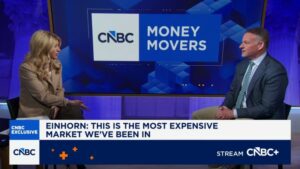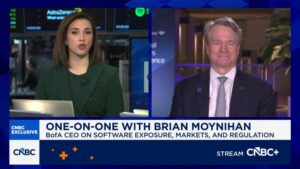Imagine putting £100k into one share in a SIPP and then sitting back to see the holding grow in value to £1.3m.
I know, £100k is a lot to invest – especially as I believe in keeping a SIPP diversified, so I would not invest £100k in one share unless I had a much larger pool of money in my SIPP to invest.
Still, turning £100k into £1.3m sounds excellent to me!
In this example, I am not even presuming any share price increase. A growing share price could speed things up, though the reverse is also true.
Taking the long-term approach
When I talk about speeding things up, I ought to mention that my approach here is a long-term one.
I think that makes sense. In this example, I am considering a timeframe of 25 years.
In the context of a SIPP, I see that as a practical timeframe. Many investors plan to hold their SIPP for multiple decades.
The power of compounding
So, how could I hope to turn my £100k into £1.3m even across 25 years, if the price of the share I buy does not move even an inch?
Simple: compounding the dividends.
Compounding at 10.8% annually, my £100k investment would end up worth £1.3m after a quarter of a century.
FTSE 100 share with a 10.8% yield
That brings me, though, to the question of whether a blue-chip FTSE 100 share would offer anything close to a 10.8% yield. After all, that is triple the average FTSE 100 yield at the moment.
One almost does: Vodafone. But its 10.6% yield is set to collapse as the company has announced plans to halve the dividend. That is a useful reminder that no dividend is ever guaranteed to last – and a high yield can be a sign that the City has doubts about whether it will.
Another FTSE 100 share has a 10.8% yield and has not announced plans to reduce its dividend. Quite the contrary, in fact: this year it affirmed its plan of continuing to raise the payout per share annually.
That company is Phoenix (LSE: PHNX), a financial services firm that bills itself as the country’s largest long-term savings and retirement business.
It has around 12m customers and operates using brands including Standard Life and Sun Life.
Looking to the future
One of the challenges when analysing financial services companies is that earnings are not always helpful. For example, fluctuating asset valuations can lead to higher or lower earnings numbers that do not necessarily help assess the underlying financial health of a business.
On the plus side, Phoenix is in a large, well-established business area and has a very sizeable customer base and deep experience in a specialist field. Those attributes could help the business, which turned over £4.9bn last year, to generate sufficient free cash flows to maintain its generous dividend.
That may not happen; one risk I see is a property market downturn hurting the valuation of Phoenix’s mortgage book, forcing it to write down the valuations.
But on balance, I think Phoenix is a share investors with an eye on long-term passive income streams should consider.
This post was originally published on Motley Fool







